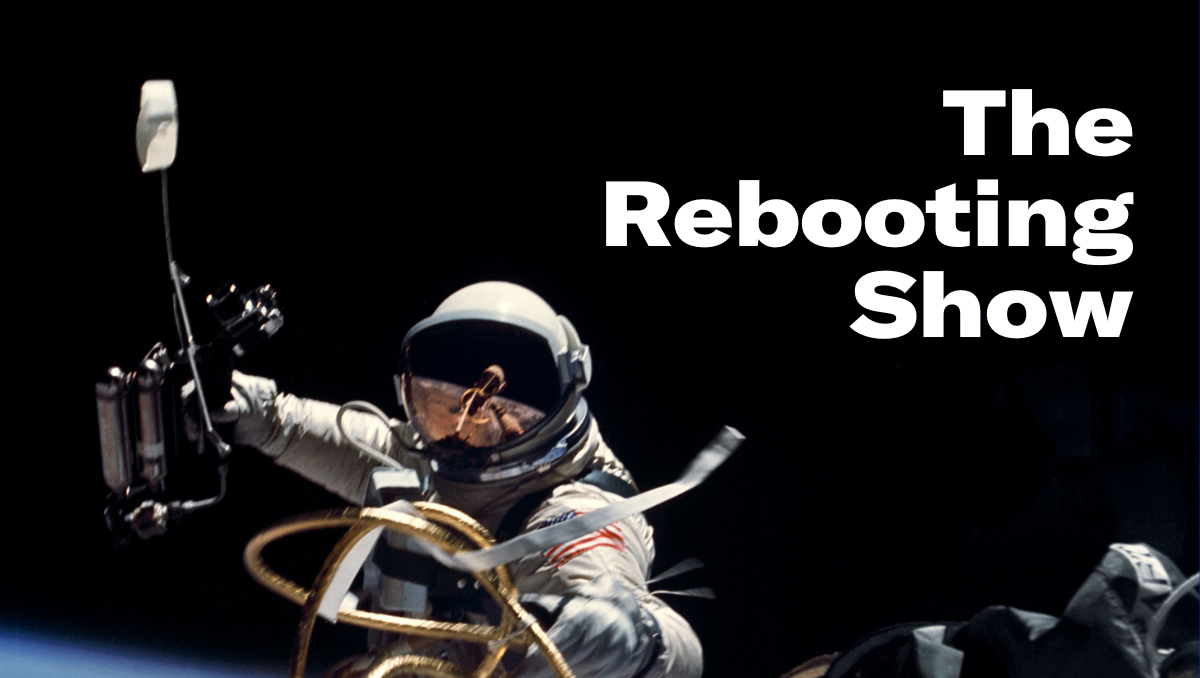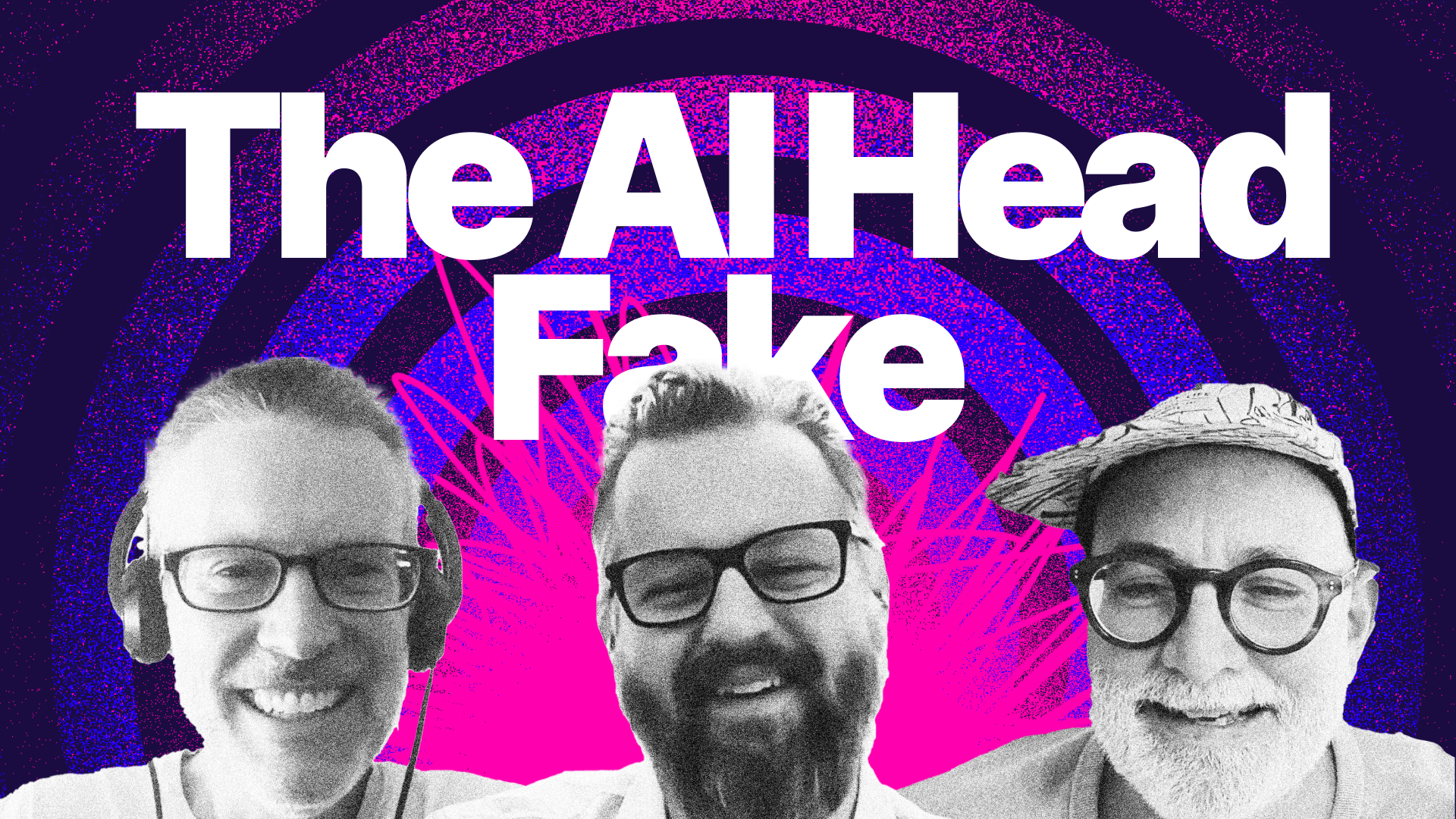The return of brand marketing
Anonymous Brand Marketer is not packing their boxes

Marketers are upstream of media in the value chain. The money starts with them, which goes a long way to explaining why there are multiple marketer halls of fame. Marketing is also one of the top professions to feel the initial impact of AI, with Sam Altman claiming AI will do 95% of marketing work and high-profile examples like Klarna looking to replace its marketers with AI.
ABM believes that’s only part of the picture. We talk about how AI could lead to a resurgence in brand marketing. I think you’ll see more publishers throw in the towel on competing at the bottom of the funnel and focus instead of complementing that with old school marketing that looks to make a human impact.
That will require publishers gain a far greater understanding of their audience. Forbes is on that journey to get a unified view of its audience and activated it across its business. The reality of modern media is that publishers need to do many things, with fewer resources, and tying audience data together is fundamental. Forbes chief innovation officer Nina Gould will join me on June 30 at 1pmET to discuss how Forbes has stitched together fragmented systems to drive personalization and engagement. This interactive virtual event is in partnership with BlueConic.
The return of brand marketing
The marketing industry used to be crudely divided into two camps. On one side was the brand marketers who focused on TV and print ads. This was the fun part of the industry. You could go on commercial shoots to Cape Town and debate funny headlines with other funny people. The other side was the direct marketing side that optimized junk mail copy and gave us "the most incredible knife offer ever" informercials.
The internet mostly erased these artificial lines in digital marketing, as the success of Google and other digital ad systems created the tantalizing believe that marketing would finally become a science and rationality would replace the superstition of bizarrely gauzy concepts like “lovemarks” that caused marketers to swoon and made CFOs reach to make sure they still had their wallets.
Of all the areas AI is poised to overturn, marketing is at the top of the list. In truth, Silicon Valley has long held marketing in low esteem. Google CEO Eric Schmidt once sniffed that brand marketing is "the last bastion of unaccountable corporate spending." The mathification of marketing will go into hyperdrive, as AI is used to create some kind of agentic ecosystem of bots persuading bots. All of this is great scifi to Anonymous Brand Marketer, a Fortune 500 marketer who sees as much BS as promise in AI's application to marketing. ABM sees it both rationalizing and driving efficiencies in performance marketing while leading to a mini-resurgence in the kinds of brand marketing that connects to humans in ways that a Salesforce agent cannot.
“If some brands and companies and marketers are going to go the AI way, I think that's fine,” ABM told me on this week’s episode of The Rebooting Show. “But that creates opportunity for people to break through.”
As AI collides with marketing, this shift to performance marketing – everyone speaks the language of direct marketers now – it will also provide an opening for brand marketing to rise again, albeit in a smaller form. Google, Meta et al will create AI-fueled ad systems that promise to act as a customer vending machine. This is a story that will win over every CFO, no matter if these are black boxes. That mechanization will inevitably lead to the commoditization that tech always visits on areas it dominates.
That runs counter to the entire point of brand marketing, which is to create differentiation in people’s eyes to allow a company to charge more. In the eyes of Anonymous Brand Marketer, the “quarter in, 26 cents out” performance marketing will continue to grow and become more efficient but be complimented by a return to true brand marketing that looks to make brands matter in a fractured and decentralized cultural landscape that will become even more so with AI’s infinite personalization possibilities.
“At some point you need to differentiate yourself and you need to have some kind of meaningful space within a consumer's life.”
ABM, who preferred to remain anonymous to speak freely, sees value in AI in marketing but also knows that it is a handy sales pitch for an array of vendors and consultants.
“I just have a lot of skepticism around some of the AI chatter because who is telling you about it? It's all the people that work in it.”
ABM also points out that most AI content today is boring. It can surface information, but it rarely delivers any kind of point of view. And that’s what brand marketers still want: not just reach, but resonance. Storytelling still matters.
“Are you just looking for information, or are you looking for a perspective? Are you looking for an experience?
AI will play a big role in the automated side. But ABM is skeptical of the broader narrative—particularly the flood of overconfident predictions about AI wiping out marketing jobs. Most of that, he says, is coming from people selling AI. The promise that machines will soon make all your ads and optimize your funnel without human intervention is mostly fantasy, at least for now.
“A lot of this is a bridge too far. There's gonna be no entry-level positions anymore. OK, well, what are you gonna call the position for someone who starts working?”
Other takeaways from the episode
Brands are turning back to IRL experiences. ABM thinks we’re in the early stages of a return to real-world moments. Not mass events, but the kinds of physical experiences that actually stick with people. That could be a smart creator dinner, a useful activation at a festival, or just something that connects to a moment in people’s lives.
“You can definitely have an outsized impact when you're seeing someone in their actual life.”
Media companies will be agencies. Marketers are still interested in reach, but what they increasingly need are ideas, execution, and help navigating culture. ABM thinks publishers should embrace that role—not just selling inventory, but building programs and solving creative problems.
“Media companies are going to have to write social posts for brands and help them promote things that they are already doing.”
Internal politics still dictate media plans. A big challenge inside brand organizations is fragmentation. Different teams want control. That’s one reason brands often look for external partners who can just get things done. The internal routing and review process is often what slows everything down.
“Every single one of those groups wants to own content, and so if the brand is producing that work, then you have to go through all of those checkpoints.”
Creators aren’t perfect, but they show up. ABM isn’t romantic about influencers. But he makes a practical point: creators can engender loyalty and credibility with audiences that institutional media usually fails to achieve. That has tangible benefits to brands that find ways to meaningfully partner with them.
“Creators will at least develop some kind of human loyalty to you or interest in what you're doing.”
Metrics are a mess—and they always will be. There’s no clean way to compare a branded moment at Coachella to a segment on local TV. So marketers improvise. ABM calls out a quiet truth of the business: the best data storytellers win. And AI is already being used to help torture the numbers.
“ChatGPT is a great friend when it comes to asking it to make data say something that you want it to say.”
Listen to the full conversation with ABM wherever you get podcasts

In this week’s episode of People vs Algorithms, we unpack how control of online distribution is shifting upstream, from search to the browser. Google’s dominance is under pressure as OpenAI and Perplexity roll out AI-powered browsers designed not just to surface information, but to take actions as Silicon Valley pursues an agentic future for AI products, even if the reality lags far behind the spin. We explore why this marks a deeper unraveling of the internet’s value chain, what it means for publishers and marketers, and how AI is accelerating product velocity.
“Distribution is the first rule of everything,” Troy said. “And it’s being reordered right now.”
Also: what the death of Demand Media tells us about the end of SEO arbitrage, why Gen Z skips straight to the comments on news articles, and how attention is nw the goal not the aftereffect
Listen now on Apple, Spotify, or wherever you get your podcasts.
Thanks for reading. Send me a note with feedback by hitting reply.
For partnerships information, find out more here and get in touch: bmorrissey@therebooting.com.


